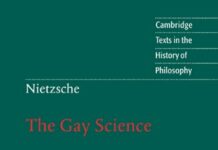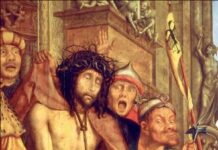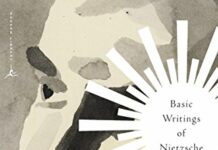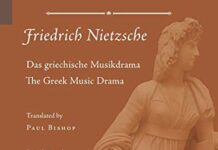
Ebook Info
- Published: 2000
- Number of pages: 224 pages
- Format: EPUB
- File Size: 0.65 MB
- Authors: Friedrich Nietzsche
Description
In The Birth of Tragedy Nietzsche expounds on the origins of Greek tragedy and its relevance to the German culture of its time. He declares it to be the expression of a culture which has achieved a delicate but powerful balance between Dionysian insight into the chaos and suffering whichunderlies all existence and the discipline and clarity of rational Apollonian form. In order to promote a return to these values, Nietzsche critiques complacent rationalism of late nineteenth-century German culture and makes an impassioned plea for the regenerative potential of the music of Wagner. A wide ranging discussion of the nature of art, science, and religion, The Birth of Tragedy’s argument raises important questions about the problematic nature of cultural origins which are still valid today.
User’s Reviews
Editorial Reviews: About the Author Douglas Smith is at University College, Dublin.
Reviews from Amazon users which were colected at the time this book was published on the website:
⭐Heavy and specialized. Beautiful writing and admirable translation. His views make sense in today’s dramatic nadir.
⭐Exactly what I expected. Excellent condition.
⭐Nietzsche’s writing style when viewed, as art is itself a remarkable example, par excellence, of the very topic he discusses-in The Birth of Tragedy-put into practice. It is ubiquitously bursting forth with such abundance (Dionysian)-yet streamlined by the infinite depth of his perceptions (Socratic)-that he illuminates the art of the entire Greek Civilization with elegant simplicity, compassion, and courage (Apollonian).Nietzsche was one of the first to analyze Greek art in terms of its psychological ramifications-both conscious and unconscious. He posits that the two driving forces for art-whether it was painting, sculpture, music, or tragedy- required a mixture of the gods, Dionysus (Pan) and Apollo, whose virtues were synonymous with nature, but nearly bipolar. Apollo, the Delphic god, requires self-knowledge and demands that his disciples exorcize prudence in action; however, Dionysus demands complete abandon and excess. One cannot exist without the other: Apollo, though despising all misery and barbaric acts, knew that his existence depended upon that of Dionysus.According to Nietzsche, Art stems directly from nature; it is not an imitation or reflection; therefore, the artist must commune with the gods and nature in order to render any art as such. The artist desires art to be ‘the unvarnished expression of the truth’ of the world; hence, Art is eternal universal truth. Art should achieve a fusion between the subjective and objective, hence, the artistic creation is ‘like the weird image of the fairy tale which can turn its eyes at will and behold itself’.Dionysus is the primordial artistic power that conjures the entire universe into being. It is a communal or collective consciousness, which exists in every individual just as every individual, exists in Dionysus. There is a complete absence of duality between individual and collective consciousness, hence, the individual transcends the limits of existence and becomes one with the collective mind who speaks with one voice-Art. Dionysus reveals the true nature of life as ‘bliss born of pain’. Nature communicates its wisdom through the agency of pathos; it wishes to share its suffering and some of the truths in the world.The paragon of Greek art is the tragedy. Tragedy takes place where Apollo and Dionysus have entwined perfectly forming a hybrid braid. The Dionysian Satyr is the incarnation of tragedy and exists within the realm of the gods as myth and cult. Tragedy transforms one into a Satyr. It is sudden and powerful: the Satyr dominated the “man of culture”, ‘like lamplight is nullified by the light of day’. This caused the tragedy to lead one back to the primal core of nature where one may stare boldly, directly into the destructiveness and cruelty of nature, which imbues one with such profound insight into the horrendous truth, that one is smitten listless with the absurdity of all worldly existence. True knowledge negates existence and the will to act-one asks, what good would it do to remedy a world, which abounds with such profound injustice-a world so askew. Then when the will is nearly irretrievably lost to the void-and a second seems to span all of eternity-art snatches us from the precipice of oblivion. The brilliance of Apollo, like a clarion call, comes shining through as art and redeems all life. Art propitiates the horrible and the comic relieves absurdity. Art soothes us with a healing immersion so sublime and tranquil that we experience life as overwhelmingly invincible and pleasurable in the face of all adversity-i.e., rapture. Through this rapture, one garners the true laurels of life and continues onward as a glorious saga that rivals that of Odysseus. This is how the Greeks experienced tragedy: it was the fount of life sustaining energy, which endowed them with a great sensitivity for the Arts. Therefore, Tragedy is a rite of passage from Man to Satyr to God (hero who is cheerful in adversity); then the vision is complete.According to Nietzsche-although the Germans have succumbed to “Socratic Optimism” and predominantly guided by concepts-there are still some vestiges of the true German spirit, which lies deep within an abyss dreaming in glorious ‘Dionysian strength, like a knight sunk in slumber’. This is the myth of Sigfried used in Wagner’s Ring. However, this also elicits the myth of Endymion whose immortality-granted by the gods-reaches a state of final atonement by spending all of eternity sleeping. Perhaps, Nietzsche is being more critical of the Germans than he appears to be.Socrates, speaking as a Philosopher, proposed that the mind perceives the truth of the world, but the body is an encumbrance acting as fetters to the mind and higher pursuits (See The Last Days of Socrates by Plato). Therefore, Socrates freed his mind (a priori) to discern the true nature of reality from mere appearance; thus, he became the first theoretical man. Everything that exists satisfies him; he never suffers from pessimism-upon uncovering the truth, there are still more layers of undiscovered wisdom, which saves him so “through his own efforts” he succeeds. Socratic philosophy instills an insatiable hunger for knowledge in its disciples-exploring and fathoming nature ad infinitum becomes an end in itself-Science becomes Art. Socrates’ influence upon the neophyte, Plato, was quite profound; hence, the entire world has adopted causality as the one true god. The individual is enshrined within a realm of solvable problems from which predictability becomes the god. There is rapture with scientific discovery and inquiry. There is a transition from man to mind, however, the mind must transcend the body in order to commune with nature and divine the truths of the world, which are highly abstract. When truth is uncovered, one experiences rapture (i.e., a gift from Apollo) and becomes a god.Who is the wisest man of all-it is Nietzsche.
⭐Nietzsche’s attempt to trace the roots of the greatest works of art: how the Dioynisean impulse, with its corollaries of intoxication, excess, self-destruction and bacchanalian joy, is combined with the Appolline, which is characterised by harmony, restraint, form and is a sort of “dream” of beauty. Nietzsche explains that great art is created through Apollo’s harnessing of Dionysos, or, in other words, through reason subordinating the animal in man. The book is a splendid display of erudition and helps us to understand the extent of Nietzsche’s admiration of the Greeks. One of his key formulations is how tragedy enabled the Greeks to nevertheless see life, in spite of the suffering entailed in it, as indestructibly powerful and joyous. Art for them was a veil, a means of escaping the melancholy and Hamlet-like loathing of world, which accompanies all knowledge. In his attempt to define tragedy, one can see that Nietzsche was still indebted, in his conceptual approach, to the metaphysics of his master, Schopenhauer, even though the book was intended as a break from Schopenhauer. The decadence of Greek tragedy, Nietzsche argues, occured with the advent of Euripides and Socratic rationalism. Instead of the merging of Apollo and Dionysos, tragedy became characterised by superficiality, optimism and rationalistic, paradoxical thought. It began to encourage a narrow, utilitarian view of life. It is only music, in Nietzsche’s opinion, that has the potential of being purely Dionysean, and, in this, he makes an excursus onto his mentor and friend at the time, Richard Wagner. He champions Wagner (to whom his book is dedicated) as a wonderfully Dionysean artist, whose music would succeed in ennobling the German people by making them great through suffering. Not surprisingly, and as soon as Nietzsche managed to come to his own, he broke also with Wagner, whose nationalism and anti-Semitism he could no longer tolerate. “The Birth of Tragedy” is Nietzsche’s first book; it is inspired, but flawed and the arguments tend to be occasionally quite reckless. Some of his formulations are quite farfetched, as well and the work, on the whole, is a fairly horrible example of purple prose.
⭐Una nueva edicion del Nacimiento de la tragedia debe ser siempre bien recibida, el libro no es solo Nietzsche joven y energico, es un trabajo que va desde lo filológico hasta lo lírico, Fueron Euripides y Socrates los que acabaron con el original espiritu griego?, fue Esquilo el ultimo gran representante del espiritu dionisiaco en armonia con el apolineo? recomiendo la lectura de sus conferencias previas, asi como el estudio de su relacion con Richard Wagner en esos años.
⭐
Keywords
Free Download The Birth of Tragedy (Oxford World’s Classics) in EPUB format
The Birth of Tragedy (Oxford World’s Classics) EPUB Free Download
Download The Birth of Tragedy (Oxford World’s Classics) 2000 EPUB Free
The Birth of Tragedy (Oxford World’s Classics) 2000 EPUB Free Download
Download The Birth of Tragedy (Oxford World’s Classics) EPUB
Free Download Ebook The Birth of Tragedy (Oxford World’s Classics)




